Coronavirus cases are spreading in Switzerland
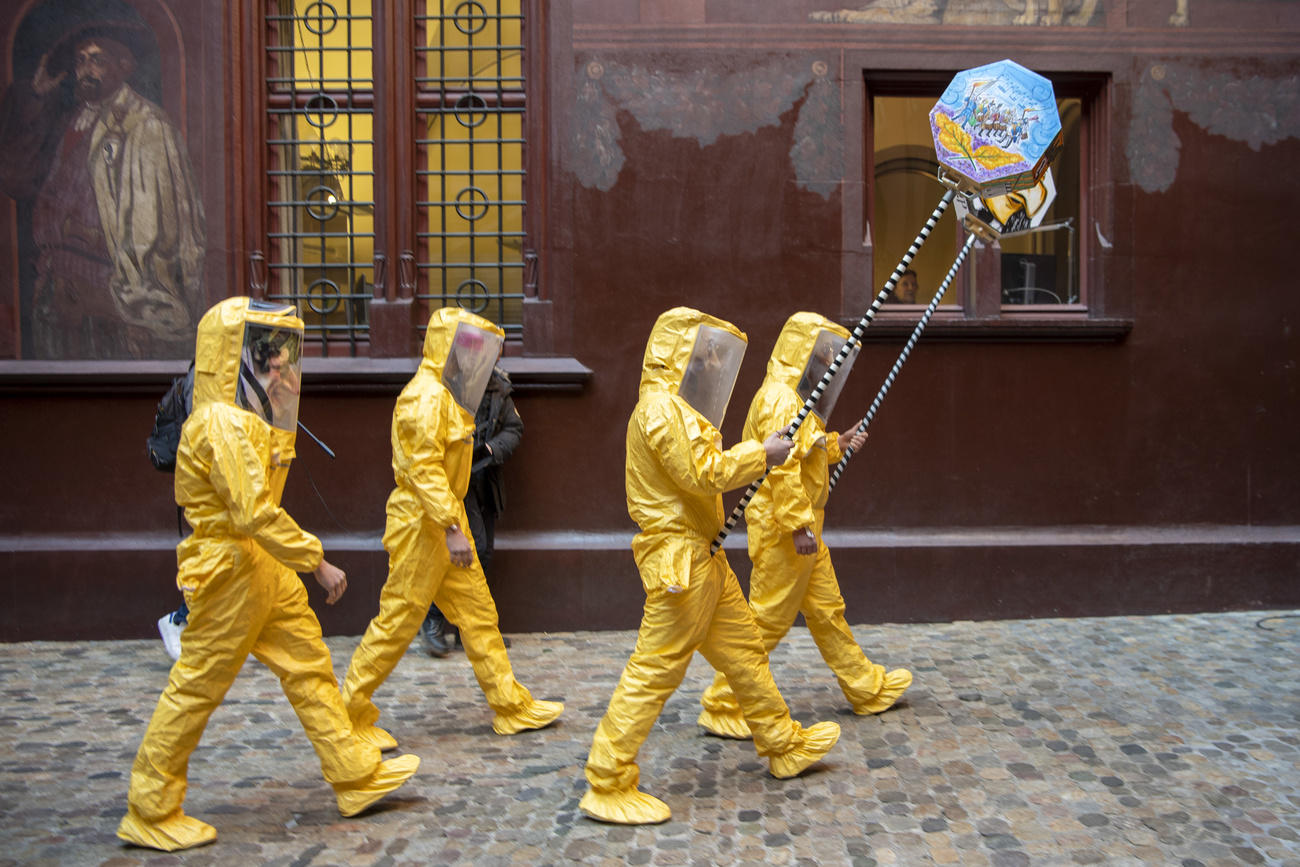
This story is current as of March 3 and is no longer being updated. See here for the latest on the coronavirus situation in Switzerland.
As the first domestic coronavirus infections appear in the country and nearly half of all Swiss cantons have reported cases, federal authorities have stepped up efforts to slow the spread of the virus. There are now more than 50 confirmed current active cases in Switzerland.
On Monday, authorities reported the first cases of people infected by Covid-19 inside the country. Since the first confirmed case on February 25, infections had been related to travel to infected regions outside Switzerland.
+ Coronavirus: the situation in Switzerland
The rising number of cases prompted the government to introduce new guidelines and measures to curb the spread of the disease. On Monday, the Federal Office of Public Health (FOPH)External link urged the public to avoid shaking hands and to dispose of used tissues in sealed waste bins.
Already last week, the office released advice on thorough hand-washing as well as how to sneeze and cough properly.
Interior Minister Alain Berset, whose portfolio includes health issues, told the SonntagsZeitungExternal link newspaper it was best to avoid the customary three-kiss social greeting.
The Swiss government also took an unprecedented measure last Friday to take over powers from the cantonal authorities to ban large gatherings (over 1,000 people) in order to contain the spread of the virus.
+ The government issued new rules to prevent the spread of the virus. What are they?
The decision was made shortly before the Geneva-based World Health OrganizationExternal link raised its impact risk alert for the coronavirus worldwide to “very high” – its highest level. The number of reported cases worldwide has risen above 90,000, with the death toll exceeded 3,100, most of them in China.
The head of the World Health Organization (WHO) Tedros Adhanom Ghebreyesus said on Tuesday that about 3.4% of confirmed cases of COVID-19 have died, far above seasonal flu’s fatality rate of under 1%, but the novel coronavirus can be contained.
“To summarise, COVID-19 spreads less efficiently than flu, transmission does not appear to be driven by people who are not sick, it causes more severe illness than flu, there are not yet any vaccines or therapeutics, and it can be contained,” he declared.
The number of coronavirus cases below includes positive test results reported by the cantons that have yet to be confirmed by the reference lab in Geneva.
Some local governments, including canton Bern and the town of Chur in south-eastern Switzerland, have announced even stricter measures.
Bern authorities say they will cancel events with fewer than 1,000 participants if organizers cannot prove that none of the participants were in a region affected by the virus in the past 14 days. Chur is banning all events with more than 50 participants, with some exceptions.
The cantons are expected to announce coordinated measures in the coming days.
Authorities are also reportedly discussing possible checks of passengers arriving at Geneva Airport from countries where the risk of infection is deemed high, Swiss public broadcaster RTS said.
+ Swiss foundation launches ‘emergency call’ for coronavirus research
Change of plans
As a result of the ban on public events, a number of major events across Switzerland have been cancelled, including the annual meeting of the World Anti-Doping Agency, which was scheduled to take place in Lausanne in March.
This month’s Geneva International Motor ShowExternal link, which usually attracts around 600,000 visitors, along with local carnivals across the country, have also been axed.
On Monday, the president of the UN Human Rights Council in Geneva, Ambassador Elisabeth Tichy-Fisslberger, announced that all human rights side events at the three-week-long session would be cancelled from March 3. Around 1,000 people are likely to be affected. Human rights meetings in the main conference hall, which takes up to 700, will meanwhile continue until March 20. All public guided tours to the UN headquarters in Geneva have also been cancelled.
The same day the organisers of the 18th annual International Film Festival and Forum on Human Rights in Geneva announced External linkthat they had cancelled the annual event (March 6-15).
A meeting of the Council of the Swiss AbroadExternal link scheduled for March 14 in Bern will not take place. Instead the leading members of the council, will take decision in a meeting by skype.
The regular spring session of the Swiss parliament opened on Monday with exceptional measures in place to prevent the spread of the virus. The parliamentary building has been closed to guests and visitors; access for journalists has been restricted.
Several sports events have also been cancelled including the Swiss football league, which has been put on hold until at least March 23 because of the coronavirus outbreak after the clubs rejected the possibility of playing matches behind closed doors.
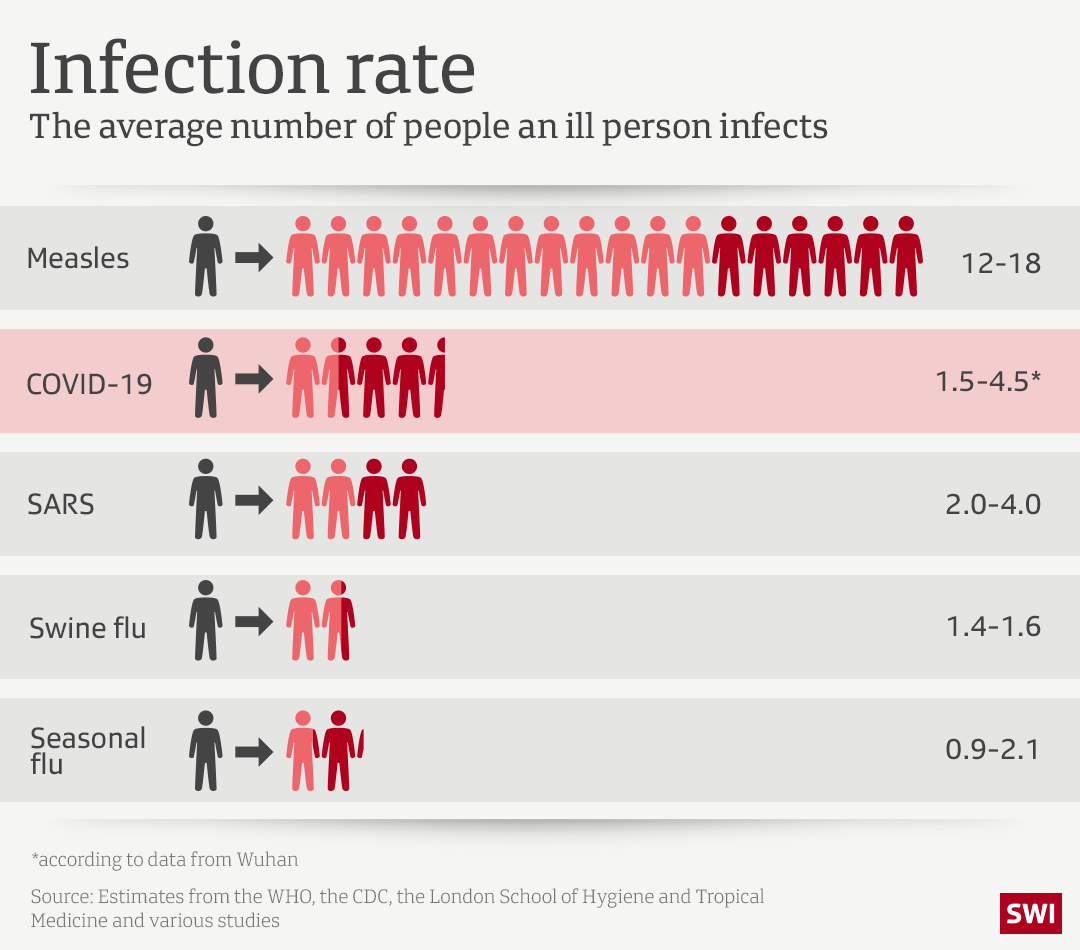
Testing
Some 2,000 suspected cases have been found to be negative. Nose and throat swabs were being taken and sent to laboratories for screening.
The number of testing laboratories in Switzerland has been boosted from one to ten with increased capacities. They can perform 1,000 coronavirus tests a day.
The Office of Public Health also said that a number of people are in quarantine. On Sunday, two college classes in canton Bern were placed in quarantine for 14 days, a first in the country. One of the students at the technical college in the town of Biel/Bienne, a 21-year-old, had tested positive for the virus.
A luxury hotel in the spa resort of Bad Ragaz in eastern Switzerland has placed five employees on a leave of absence as a precautionary measure, after they came into contact with a guest who later tested positive for the coronavirus.
Over the weekend, Daniel Koch, the head of communicable diseases at the public health office, told the NZZ am SonntagExternal link newspaper that he was confident that the risks will decrease over time. This is partly because a vaccine is likely to be developed at some point. In the end, the virus “will become a disease like any other that we already know how to handle,” he added.
Border situation
The Swiss border to Italy will remain open, Koch said on Saturday, adding that closing the border to the southern neighbour would not help to stop the spread of the disease.
The border also needed to be open to guarantee sufficient staffing at Swiss medical facilities, Koch said. He also said that schools would remain open.
SWISS international airlines has suspended or restricted travel to several countries including China, Iran and Italy.
Cases in neighbouring countries
Italy: 2,036 (52 deaths)
France: 191 (3 deaths)
Germany: 165
Austria: 18
A representative of the foreign ministry told the media that no additional repatriations of Swiss nationals in affected regions of the world are currently planned.
Earlier this month the foreign affairs ministry had arranged the voluntary repatriations of Swiss citizens from the Chinese province of Hubei, which is widely assumed to be the epicentre of the outbreak.
Economic fallout
Cancelling major events will have an impact on businesses and sectors concerned, Eric Scheidegger, head of economic policy at the State Secretariat for Economic Affairs (SECO), said.
+ Swiss industries brace for impact of coronavirus outbreak
But there are also concerns about the impact of the disease on supply chains and capital markets. The BAK economic institute on Tuesday revised its growth forecast downwards for the first six months to 1.3%, compared to 1.5% previously.
The economics minister, Guy Parmelin, will host a crisis summit on the coronavirus this week to discuss the impact of the virus with industry and social services agencies. SECO has introdced a manualExternal link to help businesses prepare for disruptions.
In 2013 the Swiss voted in favour of introducing a new law on communicable diseasesExternal link that gives the government greater powers in managing epidemic threats and creates better coordination between cantonal and federal authorities.
Follow SWI swissinfo.ch here, on FacebookExternal link and on TwitterExternal link for timely updates on the situation in Switzerland.
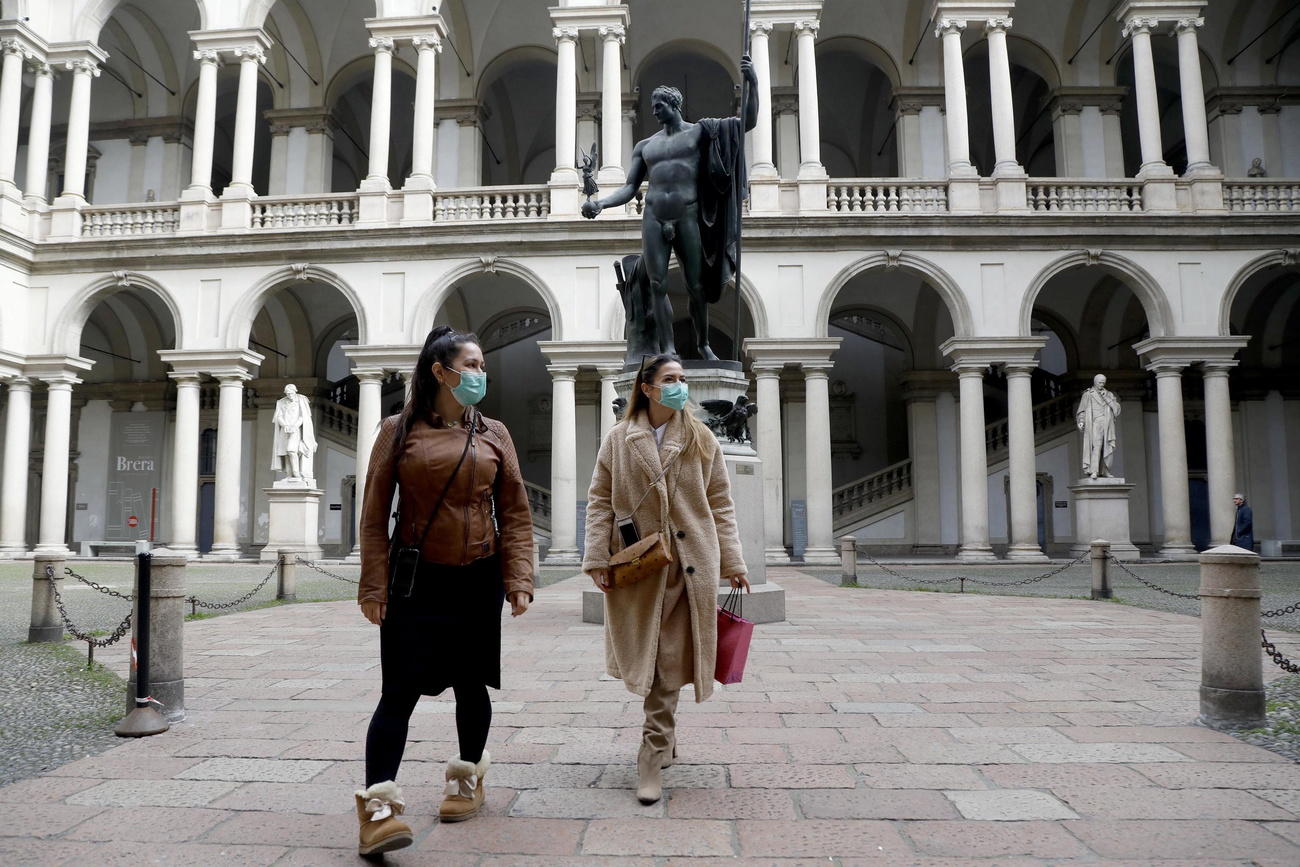
More
Switzerland beefs up coronavirus testing capacity

In compliance with the JTI standards
More: SWI swissinfo.ch certified by the Journalism Trust Initiative
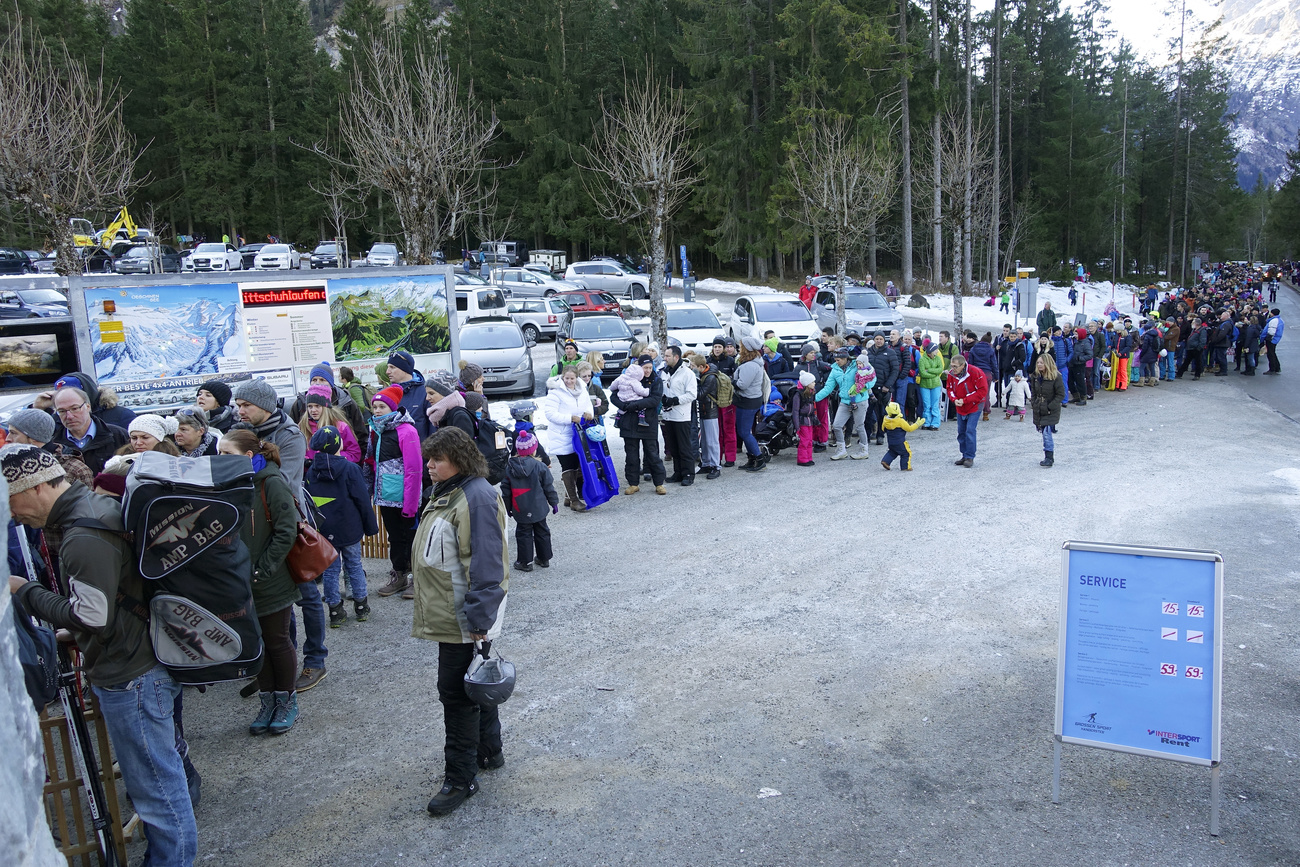











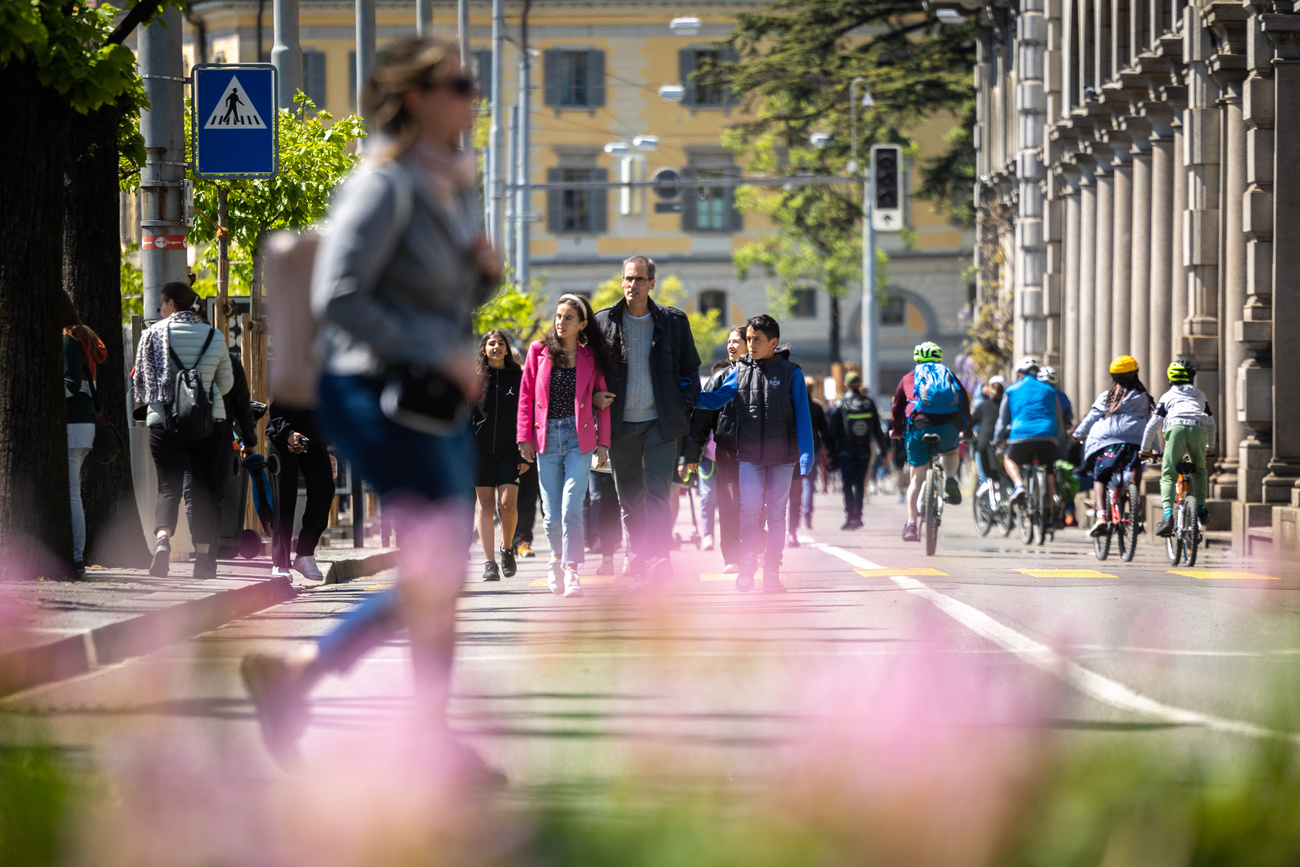
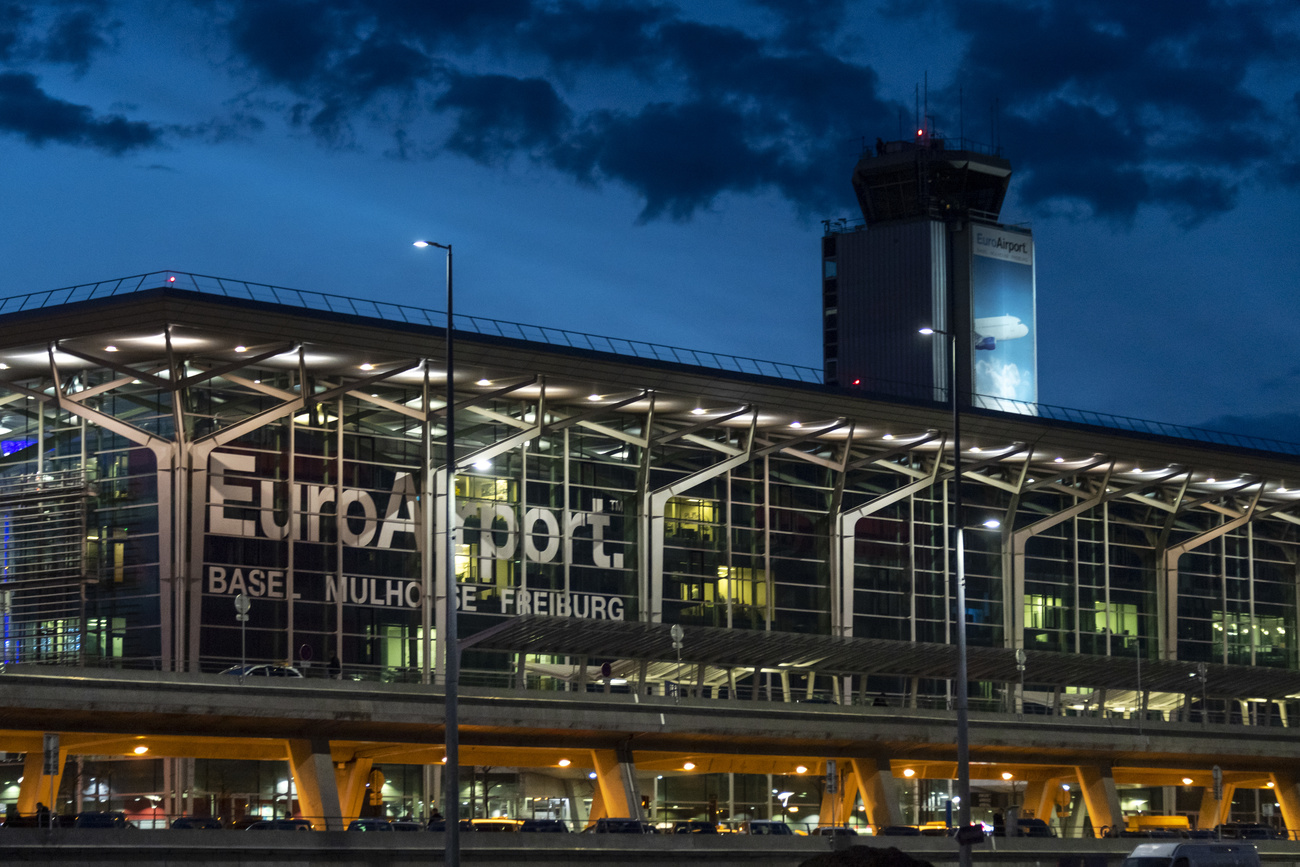
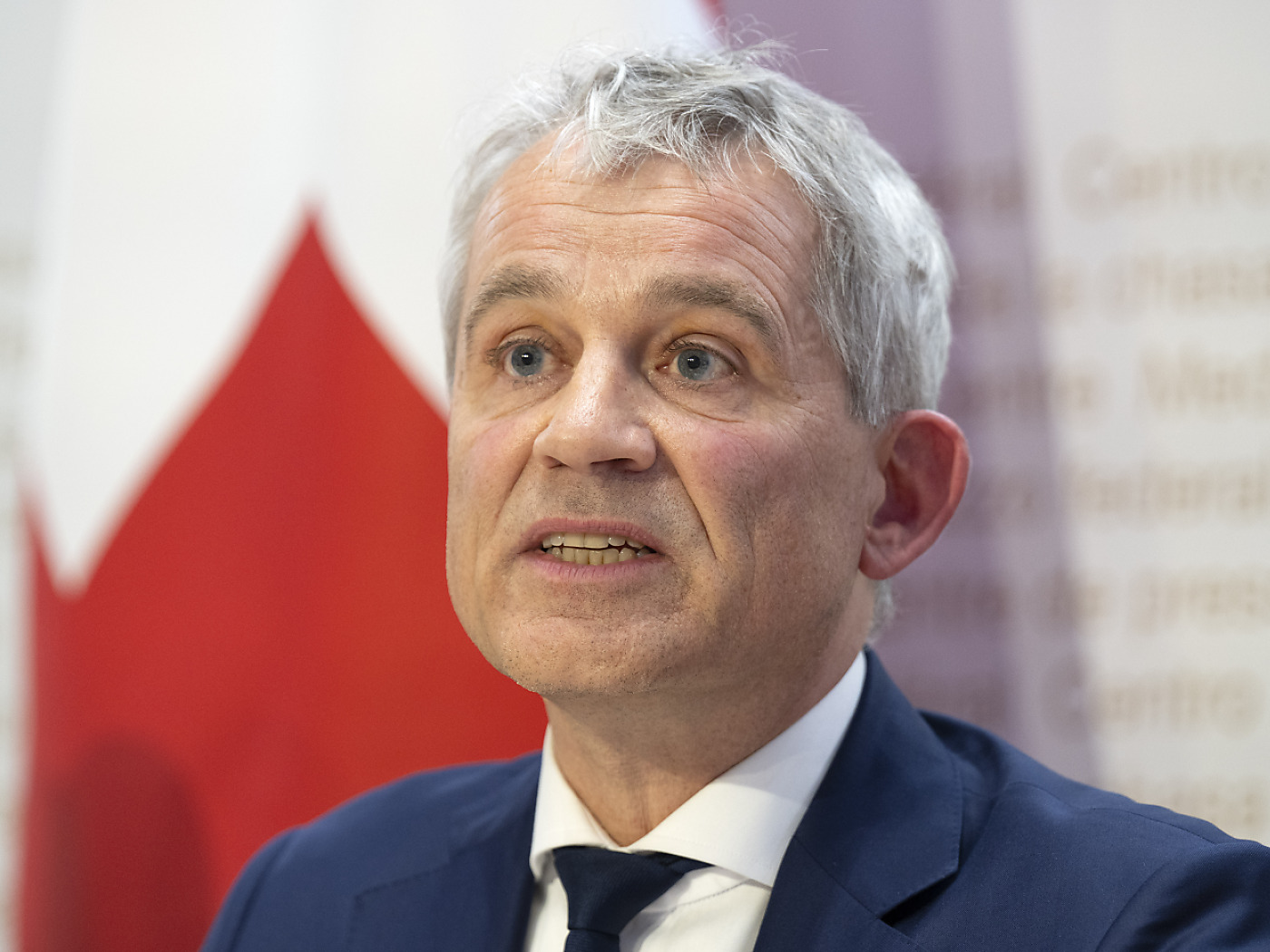




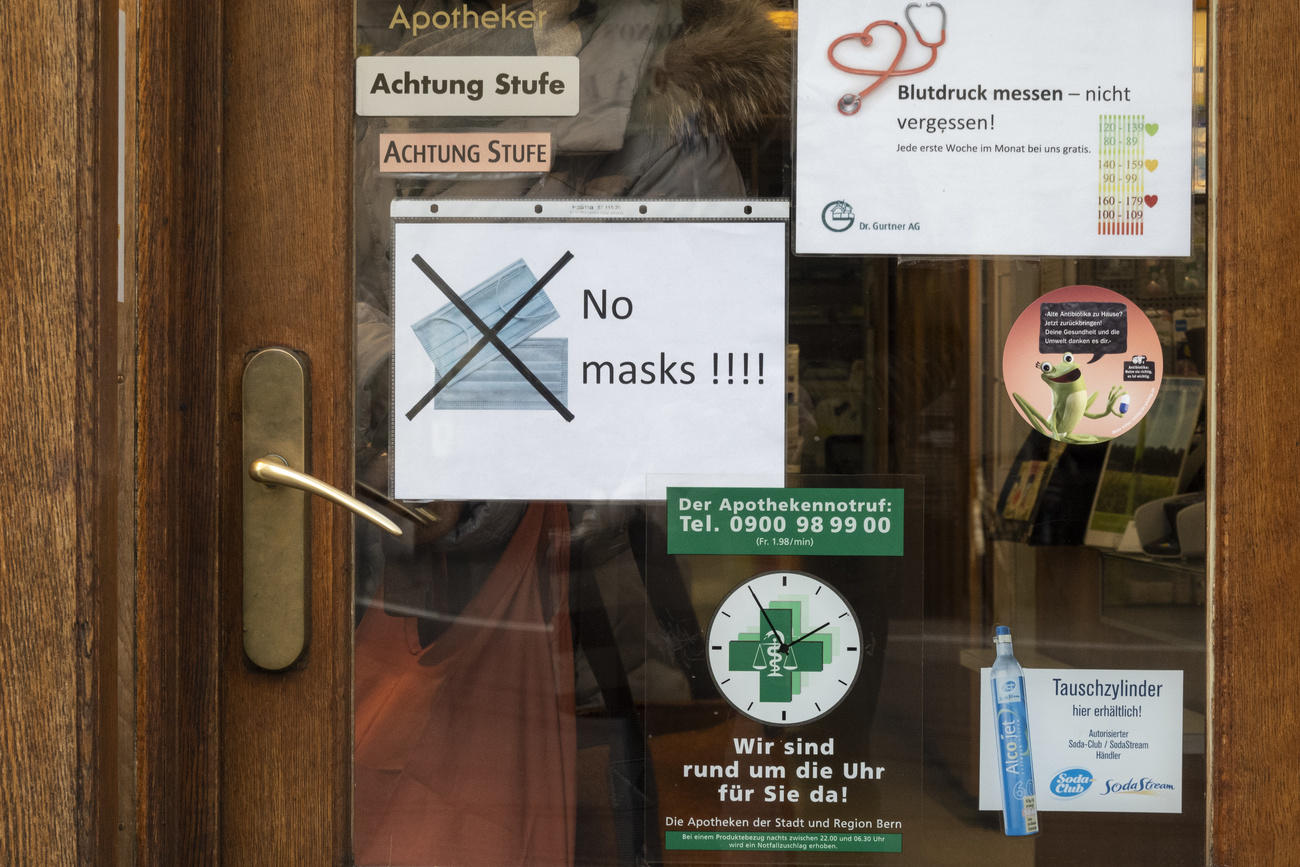





You can find an overview of ongoing debates with our journalists here . Please join us!
If you want to start a conversation about a topic raised in this article or want to report factual errors, email us at english@swissinfo.ch.